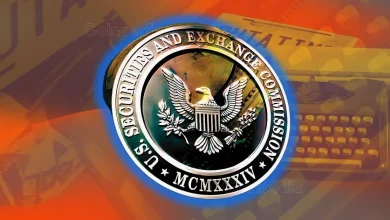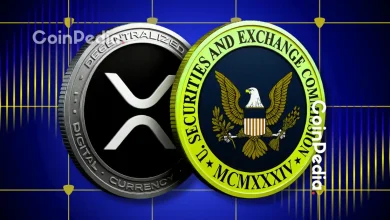
SEC accuses Gemini's crypto lending program, Gemini Earn, of securities sales.
Gemini challenges the U.S. SEC's allegations by pointing to the Ripple case, highlighting uncertainties around securities sales and definitions.
Gemini emphasizes SEC's changing arguments in the Ripple case, claiming unfairness and inconsistency.
In a bid to counter allegations brought forth by the U.S. Securities and Exchange Commission (SEC), Gemini, a prominent cryptocurrency exchange, has highlighted similarities to the Ripple case. The exchange has also emphasized the importance of understanding intricate legal differences concerning the issuance and sale of securities.
So, what has come out of this? Also, why has this rubbed some people the wrong way? Let’s explore!
What’s Wrong with Gemini Earn?
The heart of the SEC’s complaint lies in its scrutiny of Gemini’s crypto lending initiative, known as Gemini Earn. The commission contends that this program involves the sale of securities. However, Gemini contests this assertion by asserting that the SEC has not clearly defined the specific nature of the security under question.
The crux of the matter centers around who holds the authority to determine what constitutes a “security” and what constitutes a “sale.” In response, Gemini has put forward the argument that the SEC has not convincingly demonstrated that a security sale has indeed taken place.
Citing the Ripple Case for Precedent
Drawing upon a precedent set by the Ripple case, Gemini has sought to establish its position. In the Ripple case, the court employed the Howey test to classify assets as securities. This pivotal legal test differentiates tokens sold to institutional buyers from those offered on public secondary markets. A notable July ruling concerning XRP cemented this differentiation.
While the initial Ripple ruling was met with disagreement by a district court, Ripple’s Chief Technology Officer, David Schwartz, played down the significance of this dissenting view.
SEC’s Massive Lack of Clarity
At the core of Gemini’s stance lies a question of whether the SEC’s allegations accurately define a sale as outlined by the Securities Act. Gemini strongly asserts that the SEC has not provided sufficient evidence or clarity regarding the specifics of the alleged sale.
John Deaton Speaks Out
Notably, John Deaton has criticized the lawyers representing the SEC for not learning from the Ripple case, describing their attitude as arrogant. Gemini’s co-founders, Cameron and Tyler Winklevoss, have joined the discourse by pointing out what they perceive as a glaring failure on the part of the SEC to precisely define the concept of security.
This perceived deficiency, according to Gemini, weakens the case and raises concerns about adherence to fairness principles.
An Inconsistent Approach
Gemini has underscored instances where the SEC altered its arguments during the Ripple case, highlighting inconsistencies. This inconsistency, as perceived by Gemini, points towards unfairness and a lack of consistency in the SEC’s actions, which contradicts the commission’s commitment to upholding regulations.
Figures of authority within the regulatory sphere, such as Gary Gensler, Gurbir Grewal, and Jorge Tenreiro, have been viewed as believing they are exempt from legal scrutiny.








